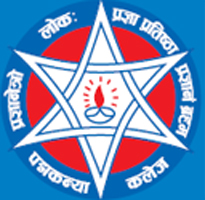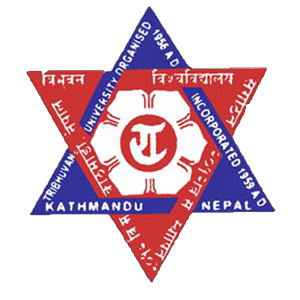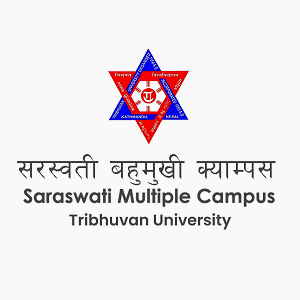Overview
Master of Arts (MA) in Rural Development (RD) at Ratna Rajya Laxmi Campus (RR Campus), Pradashani Marg, Kathmandu
Ratna Rajya Laxmi Campus (RR Campus), affiliated with Tribhuvan University, offers a Master of Arts (MA) in Rural Development (RD). This program is designed to produce skilled professionals capable of addressing rural challenges and fostering sustainable development. Its interdisciplinary approach combines theoretical insights with practical methodologies to prepare graduates for impactful careers in rural development sectors.
Course Overview
The MA in Rural Development program delves into the rural areas' socio-cultural, economic, and environmental dimensions. It integrates policy analysis, planning, and implementation strategies to address poverty, inequality, and other pressing issues. The course emphasizes research and fieldwork to equip students with hands-on experience in real-world rural settings.
Program Duration
-
Total Duration: 2 years
-
Structure: Semester-based (4 semesters)
-
Credit Hours: 66 credits
Eligibility Criteria
-
A Bachelor's degree from Tribhuvan University or a recognized institution in any discipline.
-
Applicants must pass the entrance examination conducted by Tribhuvan University.
-
Admission is merit-based, as determined by entrance examination results.
Admission Process
-
Submit an application form along with the required documents.
-
Appear for the entrance examination.
-
Secure a minimum qualifying score as set by Tribhuvan University.
-
Complete enrollment procedures upon selection.
Course Outline
The program comprises core subjects and electives, offering flexibility for specialization in areas such as Gender Development, Natural Resource Management, and Rural Marketing.
First Year Curriculum
-
Development Theories and Planning (Rural Perspectives)
-
Rural Development: Policies and Strategies
-
Rural-Urban Linkage
-
Social and Cultural Dimensions in Rural Development
-
Research Methodology and Statistical Methods
-
Local Governance and Political Economy of Nepal
Second Year Curriculum
-
Sustainable Rural Development
-
Rural Marketing and Entrepreneurship Development
-
Rural Tourism
-
Agriculture and Rural Development
-
Cooperative Development
-
Natural Resource Management
-
Gender and Development
-
Rural Technology and Skill Development
-
Thesis or Project Report
Program Objectives
-
Provide students with a multidisciplinary understanding of rural development.
-
Equip graduates with research and analytical skills for solving rural challenges.
-
Develop expertise in policy formulation and project management for rural areas.
-
Promote sustainable practices and community empowerment.
-
Enable students to address socio-economic disparities through innovative solutions.
Teaching Methodology
The program employs an engaging teaching methodology that combines lectures, presentations, case studies, group discussions, and field visits. Faculty members emphasize experiential learning through hands-on projects, workshops, and internships. Students participate in collaborative assignments and gain exposure to real-world challenges.
Learning Outcomes
Graduates of the MA in Rural Development program will:
-
Understand theoretical and practical aspects of rural development.
-
Develop skills in planning, policy analysis, and implementation.
-
Conduct independent research to address rural challenges.
-
Gain expertise in community-based development initiatives.
-
Acquire proficiency in managing resources and evaluating rural projects.
Future Scope
-
Academic Pathways: Graduates can pursue a PhD in related fields or engage in advanced research.
-
Professional Opportunities: The program prepares students for government, NGO, and international leadership roles.
-
Entrepreneurial Ventures: Graduates can initiate sustainable rural enterprises.
Career Prospects
The MA in Rural Development opens doors to diverse careers:
-
Rural Development Specialist
-
Policy Analyst
-
Community Development Officer
-
Program Manager in NGOs and INGOs
-
Sustainable Development Consultant
-
Researcher or Academic
-
Government Administrator
Scholarship Opportunities
Scholarships are provided to meritorious and economically disadvantaged students. Students can consult the campus administration for details.
Fees Structure
Ratna Rajya Laxmi Campus determines the fee structure. For detailed information, contact the campus administration.
Extracurricular and Co-Curricular Activities
The program includes seminars, workshops, and community outreach initiatives. Students actively participate in rural development projects and gain practical insights into policy-making and governance.
Real-World Application
Students apply their learning through fieldwork and project-based assignments, enabling them to tackle real-world challenges. The curriculum is designed for theory and practice, preparing students for impactful careers.
Sustainability and Social Impact
The program emphasizes sustainable development and social equity, encouraging students to address environmental and societal issues. Graduates are empowered to implement strategies that foster inclusive growth and community empowerment.
Skill Development
Students develop key skills such as leadership, problem-solving, data analysis, and communication. The program also hones their ability to design and implement development projects.
Global Perspective
The curriculum incorporates global case studies and comparative analyses, enabling students to understand rural development in an international context. This global perspective enhances their ability to address local challenges effectively.
Facilities and Support
The campus provides modern classrooms, a well-equipped library, and research facilities. Students also have access to academic counseling and career guidance.
Why Choose the MA in Rural Development Program?
This program is ideal for students interested in making a difference in rural communities. Its multidisciplinary curriculum, practical training, and experienced faculty provide a comprehensive foundation for impactful careers.
Is the MA in Rural Development Program Right for You?
This program aligns with your aspirations if you are committed to addressing rural challenges and fostering sustainable development. It equips you with the knowledge and skills needed to make meaningful contributions.
What is the Future of the MA in Rural Development Program?
Rural development remains a priority in national and global agendas. This program prepares graduates to lead initiatives that address pressing challenges. The demand for skilled professionals in this field is expected to grow.
How to Improve Your Study of Rural Development
To excel in Rural Development, stay updated on global trends, participate in workshops, and engage in community projects. Collaborate with peers on research initiatives and utilize academic resources to enhance your understanding of theoretical and practical concepts.
Conclusion
The MA in Rural Development program at Ratna Rajya Laxmi Campus is a comprehensive course that prepares students to address complex rural challenges. Its interdisciplinary approach and emphasis on practical learning with the skills and knowledge to enhance sustainable development. Whether you aspire to a policy-making, community development, or research career, this program provides a strong foundation for achieving your goals.

















